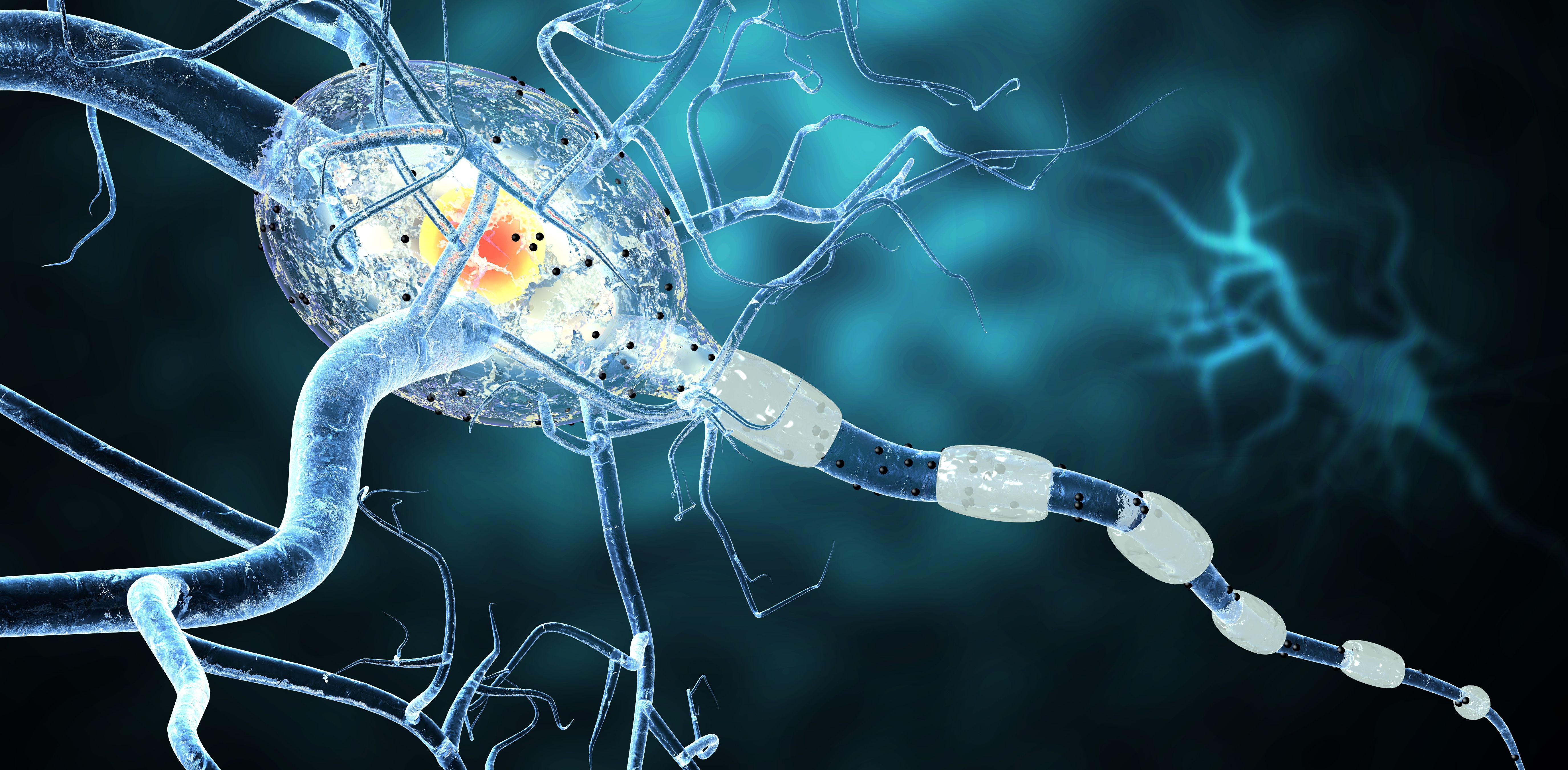- Center on Health Equity & Access
- Clinical
- Health Care Cost
- Health Care Delivery
- Insurance
- Policy
- Technology
- Value-Based Care
Further Studies Required as MS DMT Exposure During Pregnancy Increases
A large-scale, population-based study examined patterns of disease-modifying therapy (DMT) exposure in pregnant patients with MS since 2010, revealing increased occurrences and the need for future studies to examine the impact of newer-developed DMTs.
Rates of exposure to disease-modifying therapies (DMTs) during pregnancy in women with multiple sclerosis (MS) have been on the rise despite lacking data on certain treatment safety profiles, according to a recent study published in Multiple Sclerosis.
Nerve Cell MS Model | image credit: ralwel - stock.adobe.com

The availability of DMTs has altered the landscape of treatment in MS. As the number of available treatments has increased, so have efforts for earlier initiation of DMTs as they have demonstrated to reduce patient disability and relapse occurrence.
For women with MS who are considering pregnancy while being administered DMTs, many can continue their treatment, but they may also be advised to curtail treatment depending on the type of DMT they are receiving, their age, and the severity of disability. The number of pregnant women with MS who are exposed to DMTs has grown in the last decade; however, sufficient studies that investigate the impact of more recent DMTs or changes in DMTs during pregnancy are limited.
To address this lack of data, researchers conducted a large-scale, population-based, nationwide study in France to analyze the usage and impacts of DMTs during pregnancy in patients with MS from 2010-2021. Data were gathered from the National Mother-Child Register EPI-MERES in association with the French National Health Data System. Included patients ranged from 15-49 years of age and were diagnosed with MS either before or during their pregnancy.
Between April 1, 2010, and December 31, 2021, a total of 13,477 women with MS were identified who had a pregnancy end during this period. These women accounted for 20,567 pregnancies: 53.4% experienced 1 pregnancy, 30.7% experienced 2, and 15.9% experienced 3 or more. Furthermore, 42.1% (n = 8664) were undergoing DMT during their second trimester (Trim-2) and 36.9% (n = 7587) had exposure to at least 1 DMT. By the end of the study period, the annual number of pregnancies exposed to DMTs grew from 247 to 833.
Of the 7587 pregnancies that were exposed to a minimum of 1 DMT, 38.8% (n = 2947) had exposure to beta-interferon, 26.1% (n = 1984) to glatiramer acetate, 18.1% (n = 1374) to natalizumab, 9.7% (n = 733) to dimethyl fumarate, 5.6% (n= 425) to fingolimod, 2.5% (n = 192) to teriflunomide, and less than 2% were exposed to anti-CD20, azathioprine, mycophenolate, mofetil, biotin, or methotrexate. Glatiramer acetate, natalizumab, dimethyl fumarate, and anti-CD20 were observably more common by the end of the study period.
Notably, when compared with DMT-unexposed pregnancies, DMT-exposed pregnancies had higher rates of early termination (19.8%). The DMTs most frequently associated with early termination were teriflunomide (57.3%), fingolimod (50.1%), anti-CD20 (48.6%), and dimethyl fumarate (28.8%). However, by 2019-2021, the rates of early therapeutic/elective termination decreased and were similar to the rates witnessed in DMT-unexposed pregnancies (18.8% vs 18.5%).
Additionally, for pregnancies carried to term, premature birth and cesarean section were more common in women with MS compared with women without (8.4% vs 6.7% and 21.7% vs 20.8%, respectively).
From the second trimester until the end of pregnancy, 78% of pregnancies went through a discontinuation period with their DMT. In 7.6% of pregnancies, the DMT received in trimester 2 was switched to another. In 19.5% of cases, the DMT during trimester 2 was continued. A maternal age of 35 and beyond, as well as lower incomes, were associated with a decreased chance of discontinuing DMT (adjusted odds ratio [aOR] = 0.57). These factors were also associated with a decreased likelihood of switching a DMT (aOR = 0.46). Furthermore, second-line DMT usage in the second trimester was linked with decreased discontinuation odds (aOR = 0.71); yet, this factor was linked to an increased chance of switching a DMT (aOR = 1.77).
While these findings highlight the growing normalization of pregnancy for women with MS, the authors conclude by emphasizing the need for future studies in this area to account for more recent DMT developments with insufficient safety data to back their usage during pregnancy.
Reference
Swital M, Drouin J, Miranda S, Bakchine S, Botton J, Dray-Spira R. Use of multiple sclerosis disease-modifying therapies during pregnancy in France: Nationwide study between 2019 and 2021. Mult Scler. 2024 Jan 27:13524585231223395. doi: 10.1177/13524585231223395
